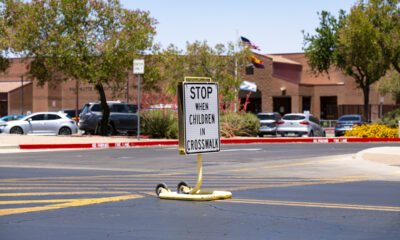Biden-Harris administration
Border Crisis: A Burden on American Taxpayers That CBO Can’t Ignore

By Matt Eagan |
A recent Congressional Budget Office (CBO) report indicates that the ongoing surge in illegal immigration at the southern border could lead to a significant reduction in the federal deficit, projected at $897 billion over the next decade. While this figure may be seen as a potential upside amid ongoing struggles, deeper analysis reveals troubling complexities and potential misinterpretations.
The CBO estimates a revenue increase of $1.175 trillion while also forecasting an uptick in mandatory spending and net interest costs by $278 billion over ten years. Yet, these figures are not comprehensive. Ignoring the broader fiscal impacts could result in misguided policy-making if Congress does not receive accurate assessments of the border crisis’s full ramifications. Critics argue this undermines efforts to address the serious issues at hand.
One major shortfall in the CBO’s analysis is the omission of discretionary spending impacts. The report acknowledges potential pressures on programs funded through discretionary appropriations, estimating an additional $200 billion in increased funding due to the immigration surge from 2024 to 2034. However, these effects were not included in the deficit calculations, reflecting a notable gap in the analysis.
Furthermore, the CBO did not estimate the financial impacts on state and local budgets stemming from increased immigration. Research typically shows that states face higher costs than revenues due to immigration, a trend expected to hold in the current surge. For instance, New York City has reportedly spent $4.3 billion from mid-2022 to early 2024 to manage accommodation for immigrants.
Texas has taken matters into its own hands through Operation Lone Star (OLS), a response to the perceived inadequacies of federal enforcement. The operation has incurred costs of approximately $11 billion, exclusively for border enforcement. Additional financial strains on healthcare, education, and public safety systems due to newly admitted individuals are not fully considered in the CBO’s analysis, leaving a significant gap in the assessment.
The report’s revenue projections are also predicated on assumptions about tax compliance among newly arrived individuals, raising questions about the estimated increase of $1.2 trillion in revenues. These projections are not only optimistic but potentially flawed.
Beyond finances, the report suggests likely economic consequences from the immigration surge. These may include stagnated productivity levels, diminished wage growth for non-college-educated workers, rising interest rates, and increasing medical and food costs. Such elements could adversely affect the broader American economy.
Perhaps the most alarming aspect is the CBO’s admission of uncertainty regarding its budgetary estimates. Various factors, including the volume and duration of the immigration influx, remain ambiguous, complicating the accuracy of its conclusions. This uncertainty calls into question the validity of claims that mass illegal immigration positively influences the federal deficit.
Making legislative decisions based on questionable data poses risks that could exacerbate existing issues. A more thorough analysis incorporating all potential costs is necessary to guide informed policy-making, rather than pursuing narratives that serve a political agenda.
The effects of the border crisis extend beyond financial implications. Amidst ongoing debates, it is crucial to consider not only the anticipated fiscal benefits but also the societal costs. The Centers for Disease Control and Prevention reported 74,702 fentanyl overdose deaths in the past year, with a connection to drugs entering through the southern border.
Additionally, the illegal immigration crisis fuels a lucrative human trafficking and smuggling industry dominated by Mexican cartels. Addressing the crisis is imperative; while the financial implications hold weight, the human toll should take precedence in conversations and policy initiatives.
The CBO’s report ultimately falls short, lacking the essential details Congress needs to drive effective action. The future of the nation hinges on acquiring accurate, complete assessments.
With a transparent and comprehensive evaluation, meaningful legislation such as the Secure the Border Act could be effectively enacted. Strong executive actions could enhance safety and security, ensuring that the country knows who is entering and the implications for American citizens. It is crucial for the CBO and Washington to prioritize factual reporting over political considerations.
This is a completely advertising post.


















